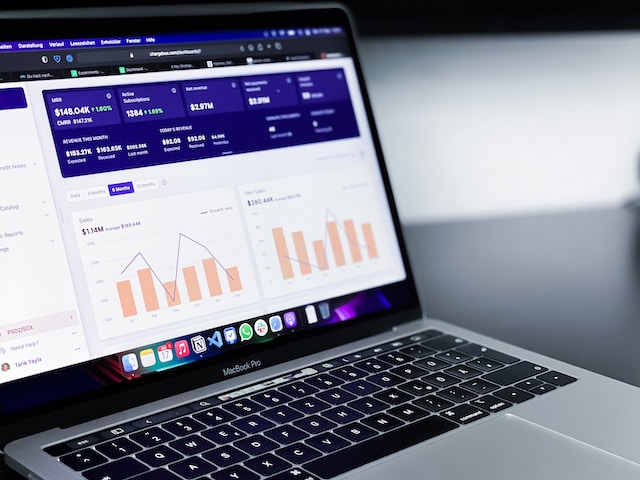Data Analyst vs. Research Engineer
Data Analyst vs Research Engineer: Which Career Path is Right for You?

Table of contents
If you're interested in the fields of AI/ML and Big Data, you may have come across two common job titles: Data Analyst and Research Engineer. While both roles are important in the world of data, they have distinct differences in their responsibilities, required skills, educational backgrounds, tools and software used, common industries, outlooks, and practical tips for getting started in these careers. In this article, we'll explore these differences to help you determine which career path is right for you.
Definitions
A Data Analyst is responsible for gathering, interpreting, and analyzing large sets of data to identify trends, patterns, and insights. They use statistical and analytical methods to draw conclusions from data and communicate their findings to stakeholders. Data Analysts work in a variety of industries, including Finance, healthcare, marketing, and technology.
A Research Engineer, on the other hand, is responsible for designing and implementing algorithms and models to solve complex problems in AI/ML and Big Data. They work on developing new technologies and improving existing ones. Research Engineers work in industries such as healthcare, finance, and technology, and often collaborate with Data Scientists and other researchers to develop new solutions.
Responsibilities
The responsibilities of a Data Analyst and a Research Engineer differ significantly. A Data Analyst's main responsibilities include:
- Collecting and cleaning data from various sources
- Analyzing data to identify patterns and trends
- Creating visualizations and reports to communicate findings to stakeholders
- Developing and maintaining databases and data systems
- Identifying opportunities for process improvements and data-driven decision making
A Research Engineer's main responsibilities include:
- Developing and implementing algorithms and models to solve complex problems
- Conducting experiments to test the effectiveness of algorithms and models
- Collaborating with other researchers to develop new solutions
- Writing and presenting research papers and reports
- Staying up-to-date with the latest developments in AI/ML and Big Data
Required Skills
To be successful as a Data Analyst, you will need:
- Strong analytical and problem-solving skills
- Proficiency in Data analysis tools such as SQL, Excel, and Python
- Knowledge of statistical analysis and Data visualization techniques
- Excellent communication skills to effectively communicate findings to stakeholders
- Attention to detail and the ability to work with large datasets
To be successful as a Research Engineer, you will need:
- Strong programming skills in languages such as Python, Java, or C++
- Knowledge of Machine Learning algorithms and models
- Experience with data processing and analysis tools such as Hadoop and Spark
- Excellent problem-solving and critical thinking skills
- Strong communication skills to present research findings to stakeholders
Educational Backgrounds
To become a Data Analyst, you typically need a bachelor's degree in a field such as Statistics, Mathematics, Computer Science, or business. Some employers may also require a master's degree or certification in data analysis.
To become a Research Engineer, you typically need a bachelor's or master's degree in computer science, mathematics, statistics, or a related field. A PhD is usually required for research positions in academia or industry.
Tools and Software Used
Data Analysts typically use tools such as SQL, Excel, Python, R, Tableau, and Power BI to analyze and visualize data. They may also use Data management systems such as MySQL or Oracle.
Research Engineers typically use programming languages such as Python, Java, or C++ to develop algorithms and models. They may also use data processing and analysis tools such as Hadoop, Spark, or TensorFlow.
Common Industries
Data Analysts work in a variety of industries, including finance, healthcare, marketing, and technology. They may work for large corporations, startups, or Consulting firms.
Research Engineers work in industries such as healthcare, Finance, and technology. They may work for research institutions, universities, or large corporations.
Outlooks
According to the Bureau of Labor Statistics, the employment of Data Analysts is projected to grow 31% from 2019 to 2029, much faster than the average for all occupations. The employment of Research Engineers is also projected to grow rapidly due to the increasing demand for AI/ML and Big Data solutions.
Practical Tips for Getting Started
To become a Data Analyst, consider taking courses in statistics, Data analysis, and programming. Build a portfolio of projects that showcase your skills and knowledge. Look for internships or entry-level positions in industries that interest you.
To become a Research Engineer, consider pursuing a PhD in Computer Science, mathematics, or a related field. Participate in research projects and publish papers to build your reputation and experience. Look for research positions in academia or industry.
Conclusion
Data Analysts and Research Engineers both play important roles in the fields of AI/ML and Big Data. While they have different responsibilities, required skills, educational backgrounds, and tools and software used, both careers offer exciting opportunities for growth and development. By understanding the differences between these two careers, you can determine which path is right for you and take the necessary steps to achieve your goals.
Data Engineer
@ Lemon.io | Remote: Europe, LATAM, Canada, UK, Asia, Oceania
Full Time Freelance Contract Senior-level / Expert USD 60K - 120KArtificial Intelligence – Bioinformatic Expert
@ University of Texas Medical Branch | Galveston, TX
Full Time Senior-level / Expert USD 1111111K - 1111111KLead Developer (AI)
@ Cere Network | San Francisco, US
Full Time Senior-level / Expert USD 120K - 160KResearch Engineer
@ Allora Labs | Remote
Full Time Senior-level / Expert USD 160K - 180KEcosystem Manager
@ Allora Labs | Remote
Full Time Senior-level / Expert USD 100K - 120KFounding AI Engineer, Agents
@ Occam AI | New York
Full Time Senior-level / Expert USD 100K - 180K